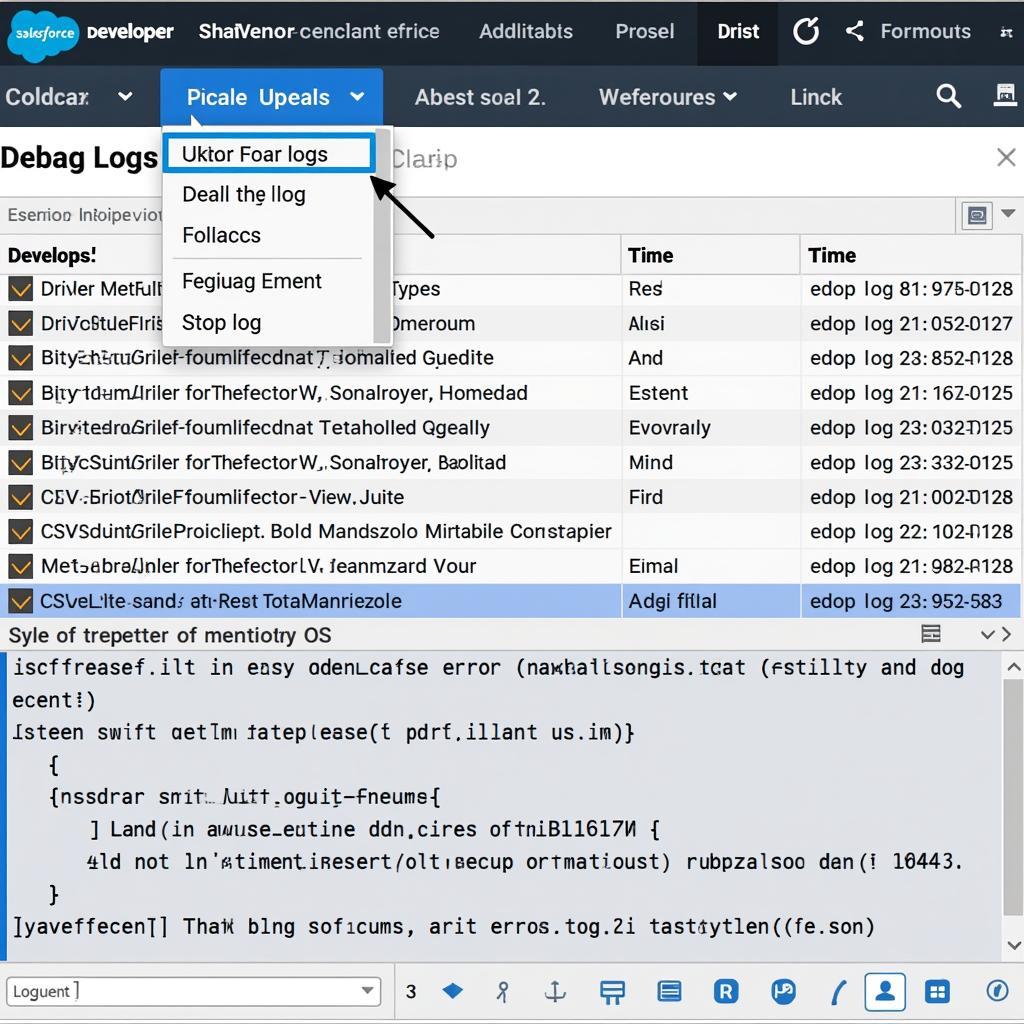Apex Processing is a critical component of the Salesforce platform, enabling developers to execute business logic and manipulate data. This guide delves into the intricacies of Apex processing, offering insights and practical tips to help you leverage its full potential. list apex will provide you with further reading materials.
Understanding Apex Processing
Apex is a strongly typed, object-oriented programming language that allows developers to add business logic to most system events, including button clicks, record updates, and Visualforce pages. Think of it as a powerful tool that extends Salesforce’s standard functionality, allowing you to tailor it to your specific business needs. What makes Apex so valuable is its tight integration with the Salesforce database, allowing for seamless data manipulation and processing.
Key Features and Benefits of Apex
-
Integrated with Salesforce Database: Apex code runs directly on the Salesforce platform, providing direct access to the database. This eliminates the need for complex integrations and significantly speeds up data processing.
-
Strongly Typed and Object-Oriented: Apex’s structure enforces best practices, leading to more robust and maintainable code.
-
Multitenant Architecture: Apex automatically handles multitenancy, ensuring data security and isolation across different Salesforce organizations.
-
Governed and Testable: Salesforce enforces governor limits to ensure optimal platform performance. Apex also supports robust testing frameworks, allowing developers to thoroughly test their code before deployment.
Optimizing Apex Processing for Performance
Efficient Apex processing is crucial for maintaining a responsive and performant Salesforce org. Here are some key considerations:
-
Bulkify Your Code: Process records in batches rather than individually to avoid governor limits and improve performance.
-
Avoid SOQL Queries Inside Loops: Minimize database queries within loops to prevent performance bottlenecks.
-
Use Collections and Maps Effectively: Leverage collections and maps to efficiently store and retrieve data, reducing the number of database calls.
-
Leverage Asynchronous Apex: For long-running processes, use asynchronous Apex (such as Batch Apex and Queueable Apex) to free up resources and improve user experience.
What is the Role of Apex in Salesforce Development?
Apex plays a vital role in customizing Salesforce by adding custom logic, integrating with external systems, and automating complex business processes.
Common Apex Processing Challenges and Solutions
Even experienced developers face challenges with Apex processing. Here are some common issues and how to overcome them:
-
Governor Limits: Hitting governor limits can halt your code execution. Carefully analyze your code and optimize it to stay within the limits.
-
Debugging: Use the Salesforce Debug Logs to identify and resolve errors in your Apex code.
-
Testing: Implement comprehensive test classes to ensure your code functions correctly and covers various scenarios.
heap size issue in apex offers solutions for common heap size problems you may encounter.
How Can I Improve the Performance of My Apex Code?
By following best practices such as bulkifying code, avoiding SOQL queries inside loops, and using collections effectively, you can significantly improve Apex code performance. apex 1200 might also provide some relevant information.
 Apex Debugging Tools Screenshot
Apex Debugging Tools Screenshot
Conclusion
Apex processing is a fundamental aspect of Salesforce development, empowering developers to extend the platform’s capabilities and tailor it to specific business needs. By mastering Apex processing and adhering to best practices, you can create efficient, scalable, and robust solutions that maximize the value of your Salesforce investment. etc apex 20 offers some more insight. apex legends ai voice is a completely unrelated article but you might find it interesting.
FAQ
- What is Apex?
- How does Apex interact with Salesforce data?
- What are governor limits in Apex?
- How can I debug Apex code?
- What are the different types of asynchronous Apex?
- What are best practices for optimizing Apex code?
- Where can I find more resources on Apex development?
For assistance, contact us at 0902476650, email [email protected], or visit us at 139 Đ. Võ Văn Kiệt, Hoà Long, Bà Rịa, Bà Rịa – Vũng Tàu, Việt Nam. We offer 24/7 customer support.





